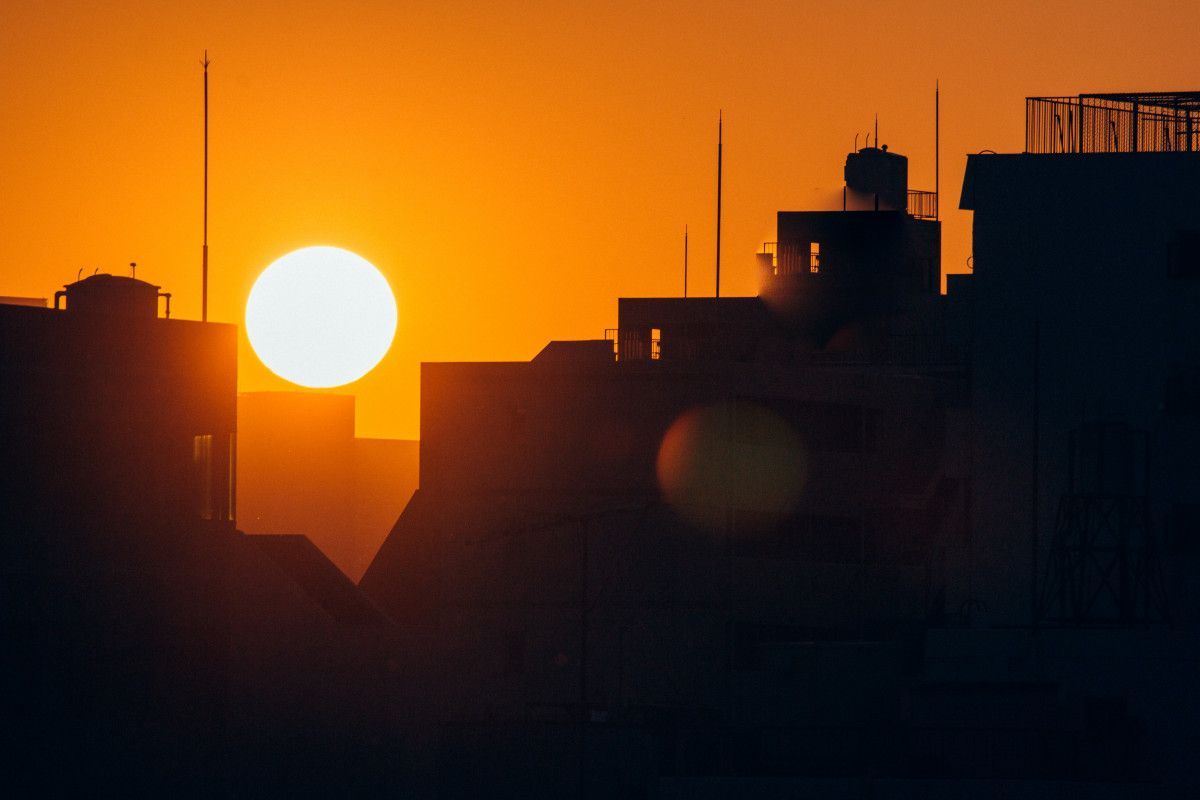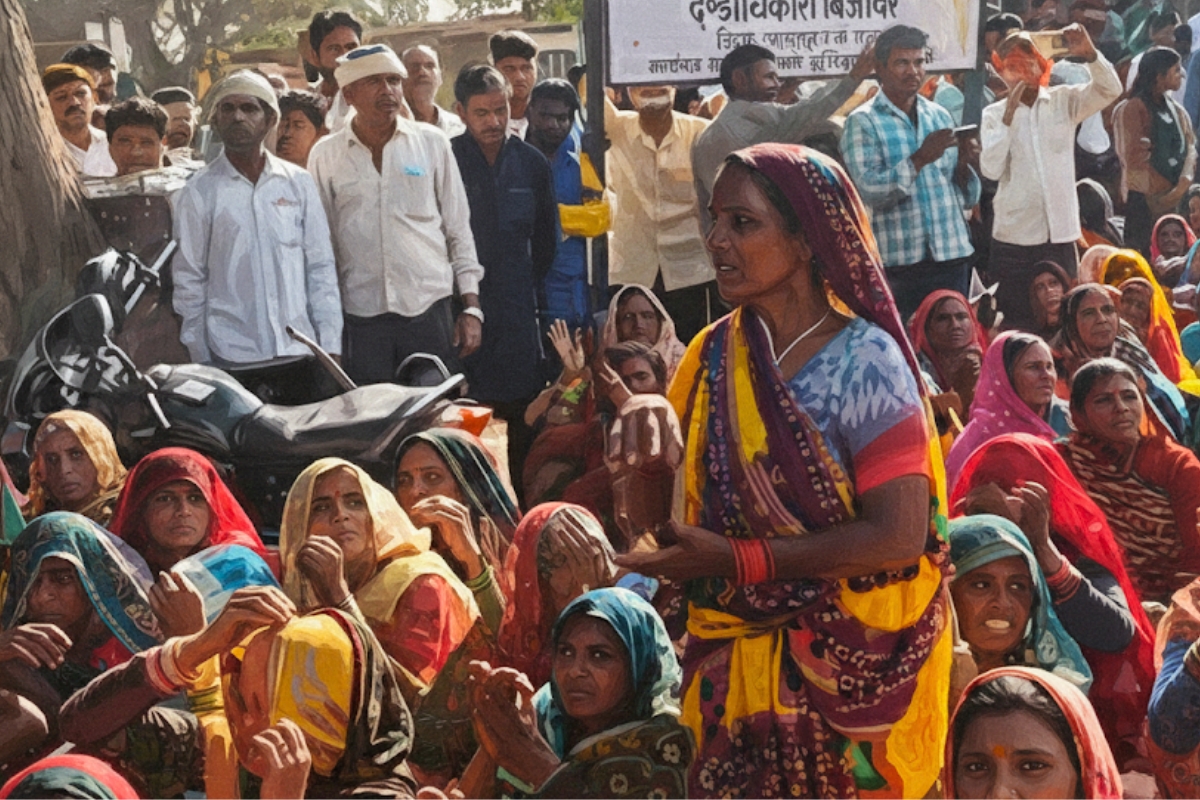Delhi broke its record for the hottest night ever with a minimum temperature of 35.2°C (95.4°F) at the Safdarjung observatory, surpassing the previous high of 34.7°C (94.5°F) set on June 3rd, 2010.
“Delhi had a ‘very warm night‘ on Wednesday, with the minimum temperature eight degrees above normal,” said an IMD official. The previous day’s maximum temperature reached 44°C (111.2°F), marking the 10th consecutive heatwave day for the city. The city is in the grip of a severe and unrelenting heatwave, with maximum temperatures exceeding 40 °C (104 °F) for 37 consecutive days. Tragically, this heatwave has claimed 5 lives due to heatstroke in Delhi in the past 72 hours.
Five people died from heatstroke at 3 hospitals: Ram Manohar Lohia, Safdarjung, and LNJP Hospital. Delhi’s Ram Manohar Lohia and Safdarjung Hospital each reported 1 death. Around 36 heatstroke cases are at RML hospital.
Rise in heatstroke cases
Delhi-NCR hospitals are overwhelmed with heat-related patients as the temperature rises. Doctors advise the elderly and immunocompromised to stay indoors.
The situation at LNJP Hospital is dire, with 3 casualties, including a car mechanic. He passed away on June 16th after being admitted on June 15th with an extremely high fever of 106°C (222.8°F). Another victim was a 70-year-old man from Bihar who had missed his train. More than 7 people have been admitted to LNJP Hospital with high fevers ranging from 106 to 107 °C (222.8 to 224.6 °F), and 5 of them are on ventilator support. Among these patients, three are over 65 years old.
“This is scary. Cities’ minimum temperatures aren’t dropping, so people aren’t getting a chance to recover. This leads to more deaths at night than during the day. Normally, the minimum temperature would fall, allowing people to recover to go back to work the next day, CSE director and environmentalist Sunita Narain said.
She said, “Urban areas like Delhi-NCR have become heat chambers due to the loss of green cover and water bodies, and mindless concretization, causing a heat multiplier effect.”
Night temperature impact on health
“The health impact of high night temperatures was worse than high daytime mercury levels. High temperatures at night indicate the Earth, which is getting boiled in the day, is failing to dissipate heat even hours after sunset,” said Dr. Ravin Sharma from Ganesh Hospital.
“After bearing sweltering temperatures throughout the day, the human body needs the night to recuperate. But due to warm nights, even that is not happening, leading to higher incidents of heat-related illnesses,” Dr. Sharma added.
“The reason that more heat stroke cases are being reported now, despite the maximum temperature hitting its peak in the last week of May, is the rise in night temperatures. Moreover, homes are also warmer than the outdoors at night. So people are out in the open when it is the hottest outside [during the day] and indoors when the dip in temperature is not very much,” the doctor explained.
A study published in BMJ Open suggests that warmer summer nights could increase the risk of death from heart attacks and strokes in men aged 60 to 64. A 1°C rise above usual summer night-time temperatures could be linked to an increased risk of death from cardiovascular disease (CVD) in this age group.
The prolonged heat spell, with no relief at night, is leading to health issues like heat stress. It’s caused by sustained exposure to high temperatures during the day and night or from continuous work in such conditions.
“Nighttime temperatures are particularly dangerous for human health as the body can’t recover from the constant heat, leading to an increase in heart attacks and deaths,” said John Nairn, Extreme weather and climate specialist at the World Meteorological Organization (WMO).
Nairn highlighted the global impact of warmer nights on sleep quality. “Warmer than average nights harm human sleep globally and unequally, resulting in less sleep, and significantly higher probability of a short night as temperatures rise.”
Safdarjung records hottest June night
According to the India Meteorological Department (IMD), this is the highest June minimum temperature at Safdarjung in 55 years, based on data from 1969 to 2024. A ‘heatwave’ is when the maximum temperature surpasses 40 °C (104 °F) and is 4.5 degrees or more above normal.
IMD has forecast a maximum temperature of 43°C (109.4°F) for today, with chances of light rain and gusty winds of 40–50 km/hr (25–31 mph) due to a western disturbance, but relief may be marginal.
Residents of the national capital are advised to take precautions, stay hydrated, and avoid prolonged sun exposure during this historic and deadly heatwave.
Keep reading
Follow Ground Report for Environmental News from India. Connect with us on Facebook, Twitter, Koo App, Instagram, Whatsapp and YouTube. Write us at GReport2018@gmail.com and subscribe to our free newsletter.
Don’t forget to check out our climate glossary; it helps in learning difficult environmental terms in simple language.






